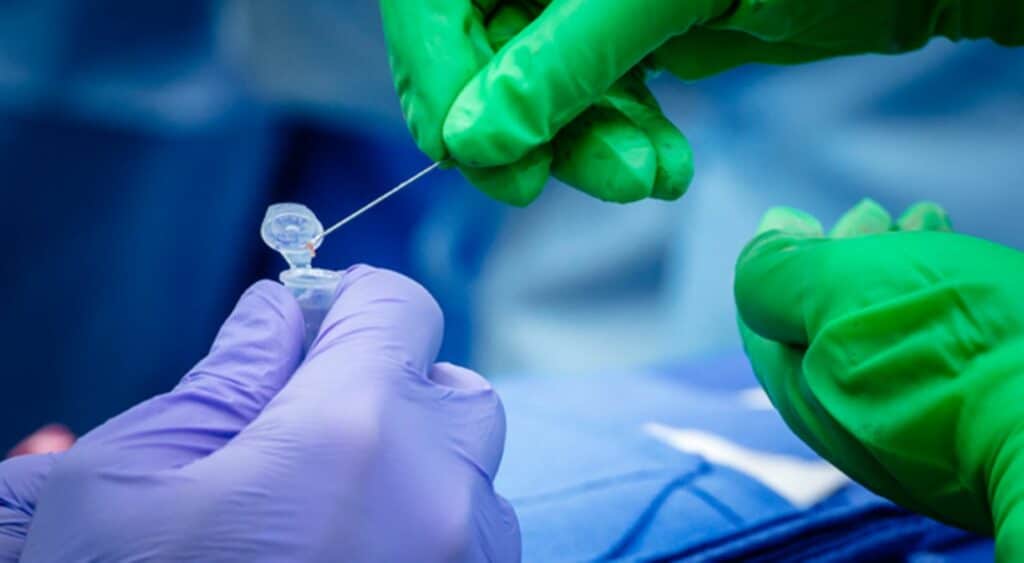A new study has proved to be extraordinary. It has shown the first-ever preclinical demonstration of genetically modified pig kidney transplantation into humans, providing life-sustaining function.
In the United States, 37 million adults have chronic kidney disease (CKD), and many may eventually develop end-stage kidney disease (ESKD). Although kidney transplantation is the gold-standard treatment for ESKD patients, only 25 000 people are given a new kidney each year. 40% of individuals on the waiting list for kidney transplants pass away within 5 years due to the enormous supply and demand gap.
Although xenotransplantation is one option for the kidney shortage. Previous reports of pig-to-human kidney xenotransplant using a preclinical human brain death model have revealed xenograft urine production but not creatinine clearance, a vital process for maintaining life. As a result, no research has yet demonstrated how a human xenograft may restore kidney function necessary for survival.

During a scheduled seven-day research, genetically altered pig kidneys offered “life-sustaining kidney function” for the first time in a human while utilizing immunosuppressive drugs that are currently considered standard of care.
UAB transplant surgeon scientist Jayme Locke, M.D., director of UAB’s Comprehensive Transplant Institute in the Marnix E. Heersink School of Medicine and lead author of the JAMA Surgery paper, said, “It has been truly extraordinary to see the first-ever preclinical demonstration that appropriately modified pig kidneys can provide normal, life-sustaining kidney function in a human safely and be achieved using a standard immunosuppression regimen.”
“The kidneys functioned remarkably throughout this seven-day study. We were able to gather additional safety and scientific information critical to our efforts to seek FDA clearance for a Phase I clinical trial in living humans and hopefully add a new, desperately needed solution to address an organ shortage crisis responsible for tens of thousands of preventable deaths each year.”
The 52-year-old study subject for this research lived with hypertension and stage 2 chronic kidney disease. As part of this study, the subject had both his native kidneys removed and dialysis stopped, followed by crossmatch-compatible xenotransplants with ten gene-edited pig kidneys, or UKidney™.
Within four minutes of reperfusion, the transplanted pig kidneys started producing urine, and within the first 24 hours, they had produced more than 37 liters. Throughout the seven-day investigation, the pig kidneys continued operating as they would in a living human. Additionally, the kidneys were still functional at the end of the research, with a final serum creatinine level of 0.9 mg/dL and a creatinine clearance rate of 200 mL/min.
Throughout the investigation, the pig kidneys underwent repeated biopsies. Using light microscopy, biopsies revealed normal histology without any indication of red blood cell deterioration, low platelet counts, or organ damage brought on by the development of microscopic blood clots in capillaries or small arteries.
UAB Heersink School of Medicine Dean and Senior Vice President of Medicine Anupam Agarwal, M.D. said, “We are grateful for our partners at Revivicor and United Therapeutics and their tireless efforts on this project. There is still important work, but we have made tremendous progress together.”
UAB President Ray L. Watts, M.D., says partnerships and sacrifices inside and outside UAB have been critical.
“Xenotransplantation is a pioneering treatment that has the potential to provide a sustainable supply of life-saving organs and save tens of thousands of lives of people around the world, and it takes a village,” Watts said. “We are proud of Dr. Jayme Locke and our expert teams, who have been so thorough in designing and carrying out these studies in a way that advances science. We also remain in awe and eternally grateful for the individuals and families who have given of themselves and their loved ones to participate in these studies that will improve and save lives.”
Journal Reference:
- Jayme E. Locke, Vineeta Kumar, Douglas Anderson, et al. Normal Graft Function After Pig-to-Human Kidney Xenotransplant. JAMA Surgery. DOI: 10.1001/jamasurg.2023.2774
